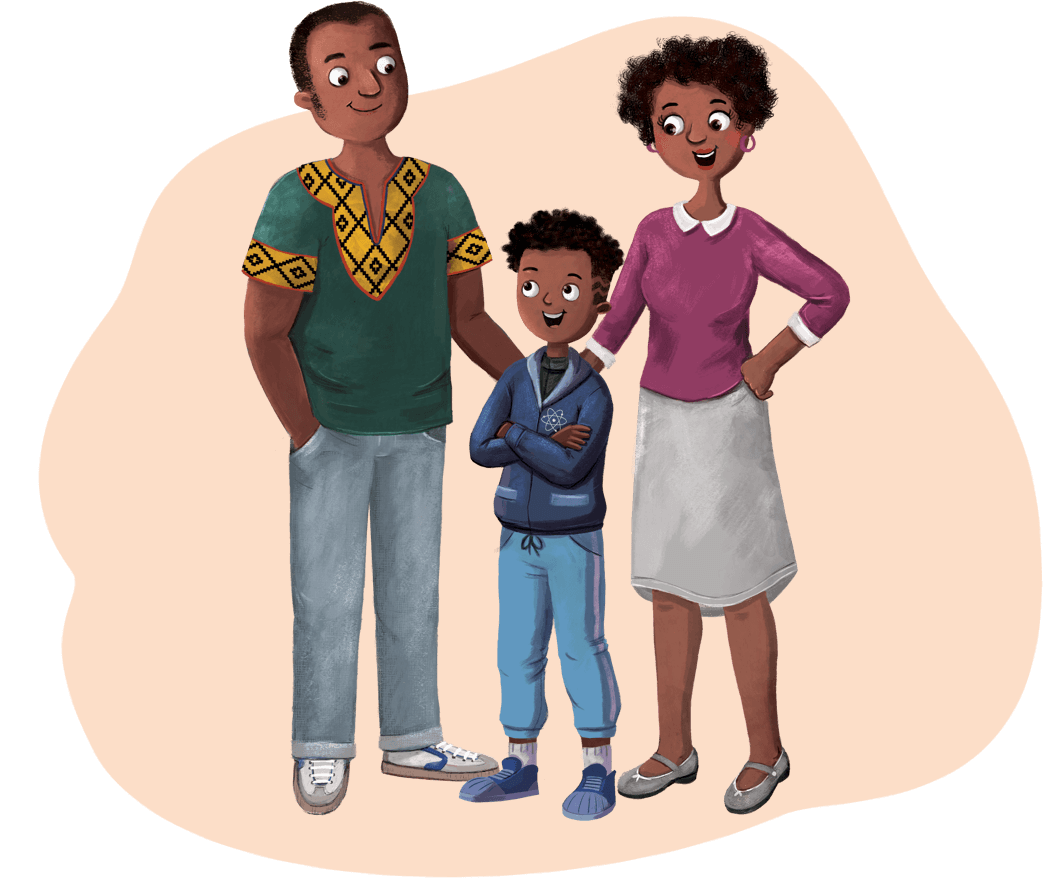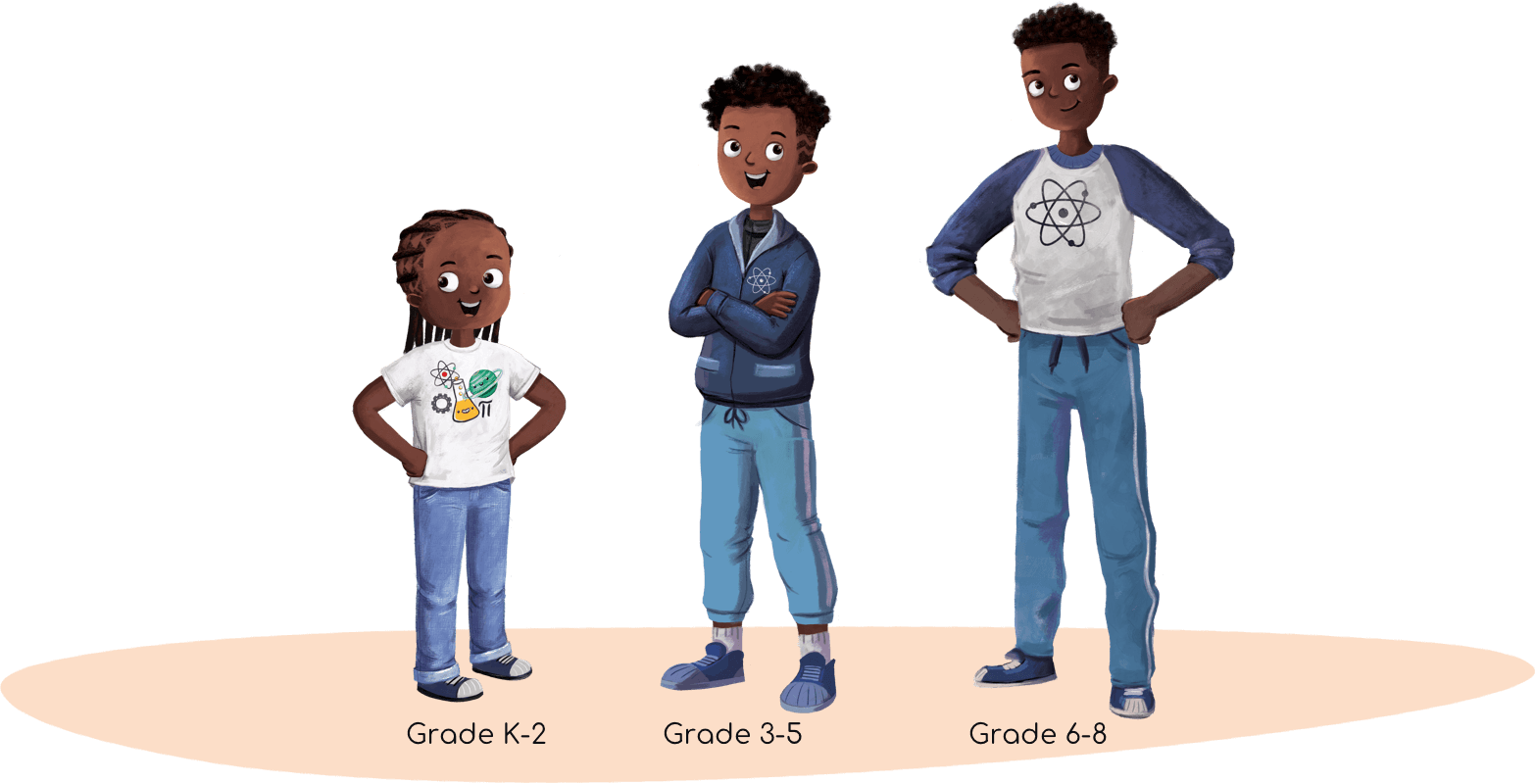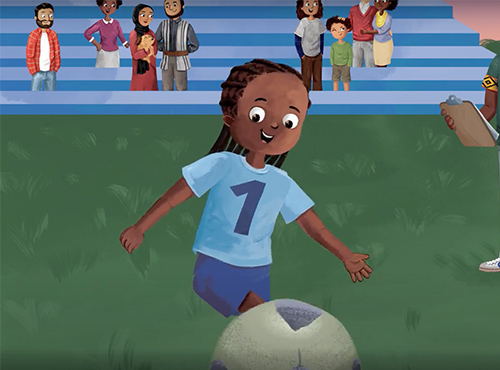KOFI ASSAN
Making the Team
My dad played soccer professionally for the Accra Lions Football Club in Ghana, and he started playing with me as soon as I could walk. Any time we have free time, our favorite thing to do together is go kick the ball around. When I started playing on a few different teams, we’d go to the field at the high school and practice every Saturday morning. He was a tough-love type of coach and wouldn’t let me get away with any shortcuts or mistakes. If I used the outside of my foot when I should’ve used the inside during a dribbling drill, we’d start the drill again.
“It’s a mental sport, Kofi,” he’d say. “Focus, communicate, and anticipate.” That was his mantra, and I always heard him saying it in the back of my mind when I played.
When I was old enough to try out for the top team in the state last year, Dad and I started doing double sessions on Saturdays. We watched videos of some of the best strikers on the Ghana Black Stars, the national team.
“Look how he anticipates where the defense will move,” he said as we watched the top scorer effortlessly weave around the opposing team’s defense and score. “That’s how you win,” he’d say before rewinding the video so we could watch again.
Before I ran off to tryouts, he gave me the green, gold, and red bandana he used to wear while he played. I tied it around my neck, focused and sure that I was going to succeed.
But then I didn’t make the cut. I was devastated. I felt like I didn’t deserve my dad’s coaching and wondered if I’d ever be as good as I wanted to be.
But my dad wasn’t disappointed or anything. He just asked me, “What can you do better next time?”
He grabbed a ball and told me to meet him outside. We ran drills around the yard while he asked me where I struggled during tryouts.
“Sprinting,” I said while I jogged behind him, breathless. “And corner kicks. They’re intimidating.”
At dinner that night, he outlined a plan to help me improve. On Saturday mornings, we timed my sprints. No breaks until my stamina was as good as his. In the afternoons, we drilled corner kicks.
“Play smart,” he’d remind me. “See where you need it to go, and get it there.”
Practicing so hard was exhausting and disheartening sometimes. When I didn’t see improvement, I wanted to quit. But my dad never let me.
“Do it for you, Kofi,” he’d encourage.
So I’d do another sprint, even when it felt like I couldn’t move my muscles for one more second.
This year when I tried out for the team, I was nervous. But I had my Ghanaian bandana tied around my neck and my dad’s voice in my head: “We win when we communicate. You play smart.”
I imagined I was running alongside him, making smart choices, and I made the second team. Making this team was about more than just getting better at my sport or having fun. It was about keeping a legacy alive. It was about playing the way my dad played—smart, astute, and as a team player. He’s taught me to learn from challenges and from my teammates, and it’s helped me in all aspects of my life. Playing soccer is a way to stay connected to my culture in Ghana and make my whole family proud. It’s more than just a sport for me; it’s a part of who I am.






